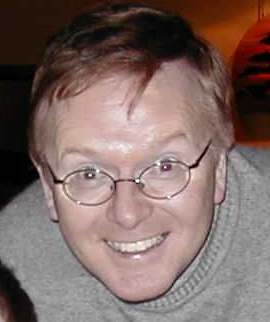
Yone Minagawa, named the world’s oldest person in January, died of old age (114!) Monday in a nursing home 520 miles southwest of Tokyo. She reportedly had seven grandchildren, 12 great-grandchildren and two great-great-grandchildren.
Thoughts and resources on Senior Independent Living and leading to the development of Age@Home
Treatment of older people in hospitals and care homes
1. In our view, elder abuse is a serious and severe human rights abuse which is perpetrated on vulnerable older people who often depend on their abusers to provide them with care. Not only is it a betrayal of trust, it would also, in certain circumstances, amount to a criminal offence. (Paragraph 20)
4. What became clear to us from the evidence is that an older person's age is much less likely to be directly taken into account when decisions are taken about his or her healthcare than in the past. However, age discrimination in both hospitals and care homes is now more subtle and indirect. (Paragraph 47)
5. We consider that the power imbalance between service providers and service users and the strong evidence that we have received of historic and embedded ageism within healthcare for older people are important factors in the failure to respect and protect the human rights of older people. These problems require more than simply action at the local level, but an entire culture change in the way that healthcare services for older people are run, as well as strong leadership from the top. The Human Rights Act has an important role to play in moving the culture to one where the needs of the individual older person are at the heart of healthcare services. (Paragraph 59)
The role of staff in protecting human rights
40. In our view, human rights training should have been provided throughout hospitals and care homes and other public service organisations from 2000. We recommend that all staff working in healthcare (both clinical and non-clinical) receive targeted and regular training in human rights principles and positive duties and how they apply to their work. (Paragraph 222)
44. Whilst we do not want to increase the burdens on healthcare staff, we are conscious that they have a vital role to play in ensuring that all patients and residents with whom they come into contact are treated with dignity and respect and are not subjected to abuse. A duty to report suspected abuse is more than merely a moral duty and we consider that such a duty should be a requirement for all staff working in the NHS and in care homes. We therefore recommend that the Government include a requirement in both the Care Standards for Better Health and the National Minimum Standards for Care Homes for Older People (or, as we have already recommended, preferably in one set of integrated care standards) that hospitals and care homes should have a policy requiring all healthcare workers to report abuse or suspected abuse, with protection for whistle-blowing and confidentiality. (Paragraph 232)Empowering older people
45. We were alarmed and concerned by how little protection care home residents appear to have against eviction, as compared to ordinary tenants in rented accommodation who have the protection of housing legislation, and suggest that rectifying this anomaly be considered as a matter of urgency. (Paragraph 241)
47. We conclude that older people, especially those who are the most vulnerable, would greatly benefit from the assistance of independent advocates in order to secure their human rights on the same basis as the rest of society. We welcome the Minister's support for independent advocates and recommend that he ensures that the Department provides sufficient independent advocacy services to older people, with particular priority being given to older people with mental health problems or who are unable to communicate in English. These advocates should have an understanding of human rights principles and the positive duties of service providers towards older people. (Paragraph 249)
50. It is important that older people and their advocates or carers have sufficient information about their rights, to ensure that they can claim them from service providers if they wish to do so. However, this should be a matter of last resort. Given the power imbalance between older people and service providers, and their resulting reluctance to complain, we do not consider that it is either realistic or appropriate to expect older people to shoulder the burden for ensuring that service providers treat them with respect for their human rights. The primary responsibility for the protection of human rights, as we have repeatedly said in this Report, falls on providers of public services. We have already recommended in Chapters 4, 5 and 6 what the Department of Health, providers of healthcare services, inspectorates and other healthcare agencies should be doing to ensure that older people's human rights are protected in hospitals and care homes. (Paragraph 272)51. We consider that a dual approach is required: firstly, older people need information about their human rights; and secondly, institutions need to mainstream human rights within their work. We recommend that the Department of Health, the inspectorates, healthcare policy-makers and every provider of healthcare services make a public commitment to: (a) embed a human rights approach in hospitals and care homes across the country and (b) make sure that accessible information on human rights and how to use them are provided to patients, care home residents, relatives, carers and advocates, and the public as a whole. (Paragraph 276)
